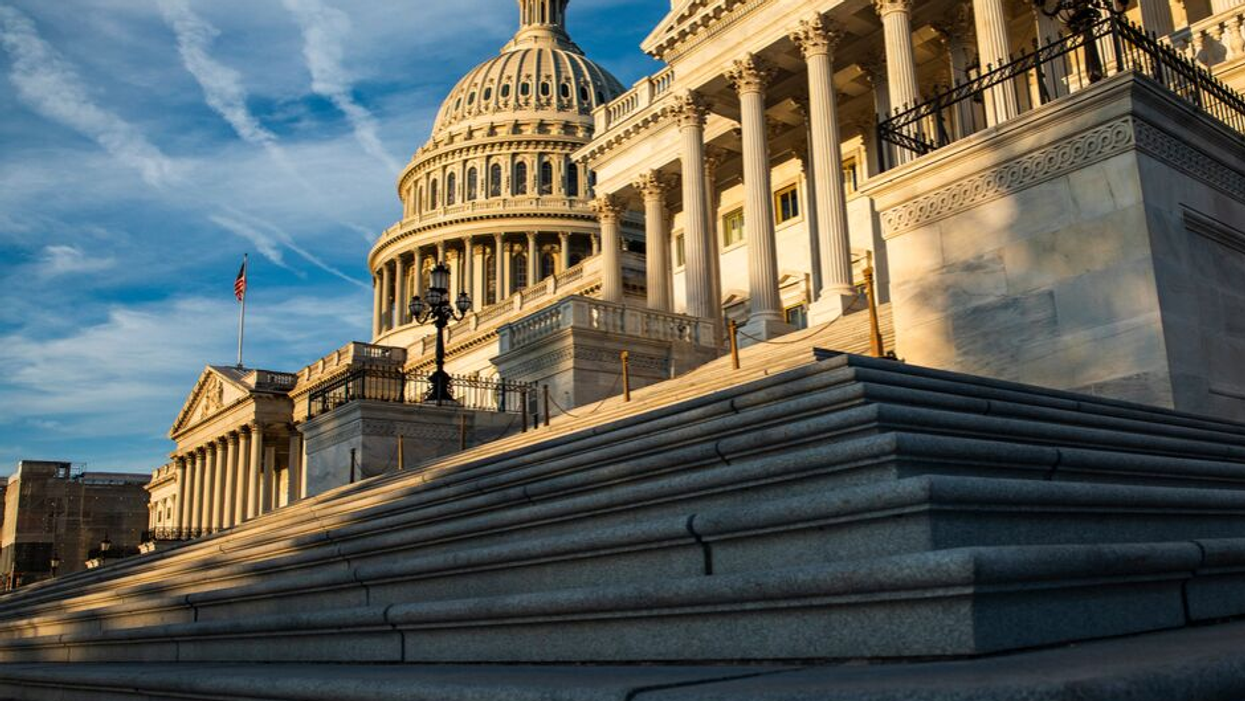Its nickname has been the Fix Congress Committee, an unusually bipartisan effort by House members to make their workplace a bit more functional. On Thursday it wrapped up work by endorsing 40 more ideas — including on such politically dicey topics as Capitol Hill's spending on itself and lawmakers steering federal spending toward home.
The panel has been something of a pet project for good-government groups inside the Beltway, who engineered its creation two years ago, pelted it with ideas and prodded it toward consensus.
For these democracy reform advocates, the formula for quelling Washington gridlock and poisoned partisanship includes boosting a legislative branch that's fallen way behind in balance-of-power struggles — and that won't happen until Capitol Hill is a place where politicians and their aides actually want to work for more than a few years and have realistic hope of getting something done.
That's why the recommendations from the panel, formally the Select Committee on the Modernization of Congress, aim to "help the legislative branch reclaim its Article One responsibilities, reform the broken budget and appropriations process and ensure the people's house has the capacity to meet the needs of those we serve," Rep. Derek Kilmer of Washington, the committee's Democratic chairman, said after the meeting.
The proposals were all about the House, because two years ago the Republican-majority Senate declined to get involved in a similar self-assessment.
The recommendations by the panel, six members from each party, won't take effect until turned into a combination of leadership decisions, House rules changes or enacted legislation — meaning they will fade away unless an array of internal turf battles and partisan spats can be set aside. And, to preserve the panel's rare record of bipartisan accord, the sharpest edges of some of the more provocative proposals were sanded down to vagaries.
Nonetheless, the committee's final proposals touched on almost all the main problems lawmakers and experts identify as hobbling Congress.
To allow a possible revival of a collaborative legislative process in which all members participate, instead of only a handful of the most powerful, the panel would revamp the House calendar to guarantee time for more committee work — and have some staffers work for both parties.
To stanch the Hill's rapid brain drain, where aides routinely turn just a few years of underpaid experience into lucrative corporate or lobbying work, the panel would increase budgets for member offices while ending staff salary caps and enhancing some health and student loan payment benefits.
Arguably most importantly, the panel would move to revamp processes for routine budgeting and the allocation of federal funds, which have been almost completely useless for more than a decade pockmarked by government shutdowns and last-minute stopgap spending deals.
Beyond switching from writing a budget blueprint every year, which no longer happens any time there's divided government, to shooting for one in every Congress, the panel made a gentle but firm proposal for reviving a limited and more publicly transparent version of so-called earmarks, essentially line items in spending bills directing federal cash to parochial pet projects.
Lawmakers who secured such provisions — which were banned more than a decade ago on the somewhat unfair grounds that they bloated the budget with "pork" — tended to vote for the spending bills on which they caught a ride, one of the main reasons why annual budget bills used to draw solid bipartisan support. Reviving them, the theory goes, would make the budget process smoother and less partisan once more, and give members more buy-in to their "power of the purse" responsibilities.
Thursday's package was adopted by voice vote, ensuring the panel's record of consensus was preserved to the end, although Republican William Timmons of South Carolina made clear he was no fan of what the panel dubbed a new "Community Focused Grant Program."
Two earlier sets of recommendations, 57 in total, were largely embraced by the full Housein March but were focused on much less politicized matters — improving technology, modernizing personnel practices, streamlining antiquated bureaucracies and incubating some restoration of a bipartisan culture at the Capitol.
"You can have very divisive issues and still reach agreement if you take the time to listen and work things out," was the main lesson for Congress from the panel's work, said its top Republican, Tom Graves of Georgia.
"Our democracy is under incredible strain," added Jason Grumet of the Bipartisan Policy Center, one of the think tanks and advocacy groups behind the effort. "The committee's own resilience sets an example for the rest of Congress.




















